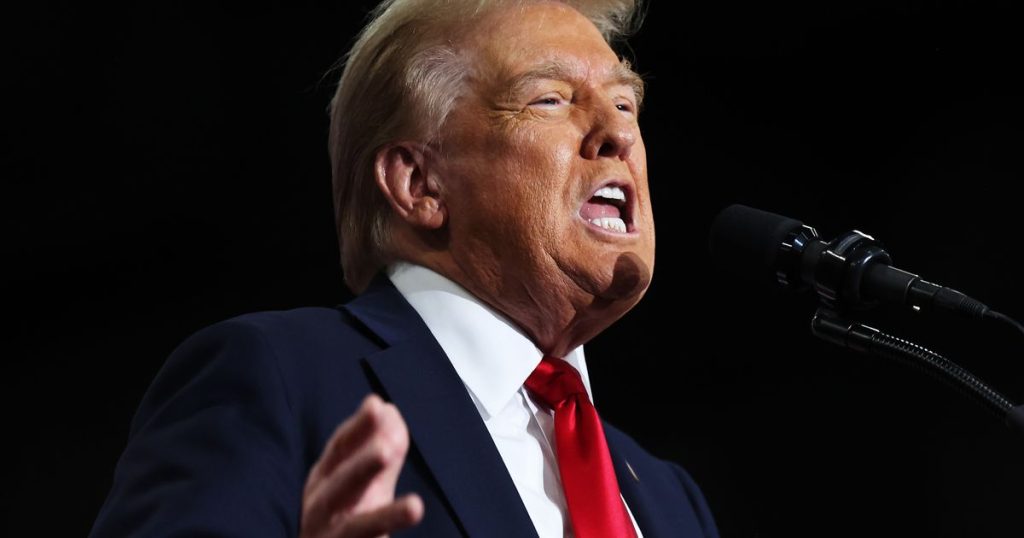Donald Trump’s ongoing feud with CBS News over an interview with Kamala Harris on “60 Minutes” extended to him calling for the network and all other TV news stations to lose their broadcasting licenses. Trump accused CBS of being corrupt and creating the “Greatest Fraud in Broadcast History” by allegedly heavily editing the Harris interview to make her look more presidential and hide her supposed incoherence. Despite backing out of his own interview with “60 Minutes,” Trump claimed that CBS poses a threat to democracy and suggested that they should have their license revoked, citing an obscure provision in the 1934 Communications Act that allows presidents to shut down broadcasters in the name of national security.
This is not the first time that Trump has made threats about revoking broadcasting licenses over disagreements with networks. He previously called for ABC’s license to be revoked after the handling of a debate between him and Harris in September. However, the Chairwoman of the FCC, Jessica Rosenworcel, has pushed back against Trump’s demands, emphasizing the importance of the First Amendment and stating that licenses should not be revoked simply due to a political candidate’s dissatisfaction with coverage. Trump has made similar demands regarding NBC and CNN in the past, particularly when they did not broadcast his full speech after winning Iowa’s caucuses in 2020.
Trump’s claims about the CBS interview with Harris seem to stem from two different clips released by the network, showing Harris responding to a question about Israel in different lengths and formats. It is unclear why two versions were released, or if the footage was edited for clarity or length. CBS has not provided any comment on the matter yet. Trump’s ongoing criticisms of the media and threats to revoke broadcasting licenses raise concerns over potential actions he may take if re-elected as president. Experts have highlighted the provision in the 1934 Communications Act that allows for shutting down broadcasters in the name of national security, suggesting that Trump could potentially act on this threat if back in the White House.
Trump’s turbulent relationship with the press is well-documented, with his repeated attacks on various news outlets for what he perceives as biased or unfair coverage. His demands for CBS and other networks to lose their broadcasting licenses reflect his continued efforts to discredit media outlets that he disagrees with. Despite his threats, the FCC has reiterated its commitment to upholding the principles of the First Amendment, indicating that licenses should not be revoked based on political disagreements. The controversy surrounding the “60 Minutes” interview with Kamala Harris further underscores the challenges of navigating media coverage in an increasingly polarized political landscape, where accusations of bias and censorship are prevalent on both sides of the spectrum.


